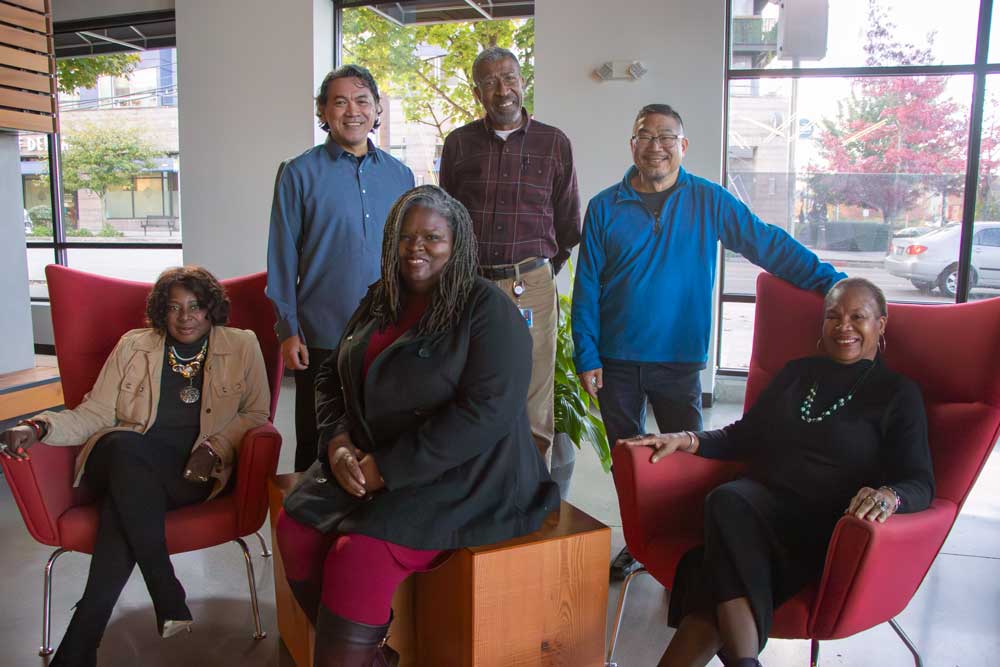January 12, 2024
“Moving Beyond Listening”: Anti-Racism Work at HPRC
In the summer of 2020, the murder of George Floyd sparked crucial conversations at HPRC about how the center could change their work and culture to be more anti-racist. Recognizing the need for change, the center strategically planned a three-part series of internal retreats to address and reshape its values. These retreats resulted in a Change Team comprised of HPRC staff, faculty, and students. The team was envisioned as a driving force to sustain and advance HPRC’s commitment to anti-racism, anti-oppression, and positive transformation.
The Change Team is comprised of three committees, each with a unique purpose and focus. The Climate of Culture and Belonging Committee works to cultivate a positive workplace culture and environment where everyone feels valued and that they belong. The Research and Evaluation Practices Committee ensures HPRC research is planned, conducted, and disseminated in ways that center the needs of the communities HPRC serves. Lastly, the Coordinating Committee plans and coordinates Change Team logistics, membership, communication, trainings, and retreats, and guides anti-oppression efforts by promoting the sharing of power, information exchange, solicitation of input, and encouragement of participation.
Recent Work
In the summer of 2023, the Research and Evaluation Committee sought input and gathered feedback from HPRC’s Community Advisory Board (CAB) members on anti-racist work to better understand community leaders’ experiences and priorities for the Change Team. Through one-on-one and small group listening sessions with Research and Evaluation Committee members, the CAB shared their feedback about their communities’ experiences with research in general, HPRC’s participatory research approach and how they envisioned being involved in future Change Team efforts.

CAB members discussed key components of anti-racist work, such as finding time to reflect and learn about positionality and professional experiences, as well as how those experiences influence the way we view and navigate the world. They encouraged HPRC to make time and space to get to know each other and community partners, calling it, “the heart work of anti-racism,” and the foundation of moving forward.
“Hearing your history is how we make connections and start seeing similarities”
-CAB Member
CAB members also suggested that the center’s anti-racist efforts should work to rebuild trust with communities. A CAB member stated, “I’d like to see some joy in this. Focus more on the strengths of this community, the resilience of this community… I want community to be invited, not you [to] bring something to them because [they’re] sick.”
CAB members asked that HPRC’s research efforts be action-oriented, adaptable, flexible, and responsive to changes from the community, “otherwise it’s just training manuals on the shelf that get dusted off periodically and asked now what?” CAB members asked the Change Team to critically examine the center’s position within the UW structure and reflect on current systems to recognize oppression, remove barriers, and make actual meaningful change. Additionally, they asked that the center consider context, racism, and structural inequities when conducting chronic disease and aging research.
“Our agenda of getting people to do more healthy behaviors ignores history of microaggressions – day to day stuff like getting a doctor…everyday life is so much more confrontational and unpredictable.”
-CAB Member